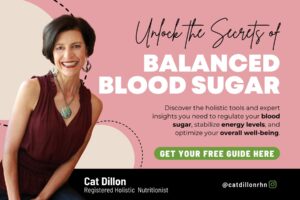Are you taking collagen for your gut, blood vessels, bones, muscle elasticity, hair, skin, nails, or sleep?
Good!
Normally our bodies would produce these (19!) amino acids on their own, but modern lifestyles, stress, illness, and an unvaried diet can inhibit our production of collagen.
The kind of collagen most often seen on health food store shelves is the “collagen peptides”, or “hydrolyzed” type made by processing collagen protein through hydrolysis.
This is the most bioavailable form of collagen for our bodies. It’s also easy to use because it’s odorless, tasteless, and dissolves in hot or cold liquids. Many people add collagen peptides to their cup of morning coffee or smoothie.
Marine collagen is a form of hydrolyzed collagen is made of the scales and bones of fish and is rich in Type 1 collagen, the most abundant form of collagen in your body. It’s also easily digestible.
Gelatin is derived from collagen, and so it is a form of collagen. You always want to make sure you get the grass-fed type. You can even make healthier panacotta, gummies and tea-jello from it!
I don’t have all day, and nor do you, so here are…
3 IMPORTANT things to keep in mind when you use collagen…(side notes)
- Making sure your collagen is “grass fed and NOT from rendered from contained concentrated animal feeding operations (CAFO) byproducts such as endocrine-disrupting chemicals, prescription drugs, and antibiotics.
- Getting some vitamin C in your day for legit absorption of collagen.
- Making sure you get “enough” protein in your meal containing collagen (collagen has 7 g protein a scoop – not nearly enough. You need at least 20 g/meal)
Finally…
1. Are you histamine intolerant? You may need to be careful about consuming gelatin or gelatin powders. Some report a histamine reaction to these foods and thus gelatin might not be appropriate for those with severe intolerances.
2. Have you tried collagen and noticed that it flairs up your anxiety?
A little known fact is that collagen has been used in tryptophan-depletion studies to lower serotonin levels. Tryptophan is a precursor to serotonin. One of the amino acids missing in collagen is tryptophan. This is NOT to say it flairs anxiety up, just that it has the potential. You can always try adding a little tryptophan, or 5 HTP to you day when you take collagen and see it that helps.
3. Getting brain fog or migraines?
Collagen is often recommended for those with a digestive disorder called “Leaky Gut Syndrome”, but people that are sensitive to glutamine need to be cautious when consuming collagen protein. Glutamine is an amino acid that is found in abundance in collagen protein.
How does this happen? Glutamic acid from glutamine may leak into the bloodstream via the compromised intestinal walls that are found in people with Leaky Gut Syndrome. Too high levels of glutamic acid can trigger brain fog, migraines, mood swings, more serious mood disorders, and even seizures if you are prone to them.
Bottom line?
Work with a good practitioner to make sure what you are doing is the right thing. If you love your collagen? Great, keep doing what you are doing.
I have personally been using collagen for over a year with 0 problems & only wonderful benefits.
I have found through experimenting with various types of collagens that THIS PARTICULAR ONE does a killer job at growing my nails, and now with my added hylauronic acid taken both topically and internally, I am having trouble typing!!!!!
Holy smokes!!


